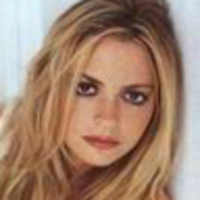Lou Reed had the most amazing life.
He cheated death many a time. So what if it finally stuck out its ugly foot and tripped him at age 71?
Reed did damn well for himself. He made the most coherent case yet for self-destruction as a lifestyle choice that was somehow more hopeful and rhapsodic than whatever they were selling under steeples.
He had a rock ‘n’ roll heart. He is still alive.

Reed was born in Brooklyn, back when it was still really a place where people lived. According to the song “Coney Island Baby,” he had to play football for the coach. Is that really possible? Hard to imagine. The song borders on gospel in its commitment, however, and boys will be boys, even future junkies of America. So maybe in Freeport, the Long Island fishing village the Reeds moved to, young Lou was a cerebral quarterback. In any case, The Velvet Underground’s 1969 live album was recorded in Dallas, of all places, and opens with banter about the Cowboys beating the Giants. Not really what you associate with those wraparound sunglasses and all that art-school cool, or with a band that is going to play a seven-minute song about shooting heroin for an even longer time live, but like I said, Reed had the most amazing life. He probably watched Monday Night Football on a black-and-white Zenith in Warhol’s Factory while Andy painted—or “painted.”
Remember, that was a time when Joe Namath was wearing pantyhose on TV in a Beautymist ad. The weirdness of the era and the ridiculousness of the silver foil all over the Factory walls were not enough to account for why the Velvet Underground was discovered by Warhol in 1964 and not by the rest of the world until 1984. People say incredibly stupid things that are not true by way of explanation, like how music was all hippie-dippy in the mid-‘60s and the Velvets were dark. As if the Rolling Stones were not at the very least the second biggest event at the time. So I don’t buy any story except that sometimes things go wrong and, mostly, people are dumb.
The truth is, Reed’s whole career is a study in things going wrong and working out beautifully just the same. I love him, but most of his solo albums are a mess—an inspired mess, but messy nonetheless. He never found the kind of collaborators he had in the cacophony he achieved with John Cale, Sterling Morrison, and Moe Tucker of the Velvet Underground. Looking back, even the flushing toilet in “European Son” seems spot on. On his own, Reed wrote some perfect songs that are imperfectly produced, occasionally too deeply macabre into heavy metal, sometimes sounding like the worst tendencies in adult contemporary this side of Michael Bolton. Seldom is anything as catchy or as clever as the work he did with the Velvet Underground, probably recorded under circumstances that were rather unpleasant because everyone was young and fucked up and disagreeable.
But something interesting was going on as Reed made all these clumsy but still wonderful efforts in the studio over the years: a life was in progress.
Reed wrote songs about falling in love, considering marriage, giving up vodka, not being able to give up any substances, riding his motorcycle when at long last clean, satellites that look like stars, living in New York City gone wrong, falling in love late in life, and the dirty world that keeps getting dirtier. And he just kept doing it with a persistence that is a grandeur. The quantity over time is quality, because he matters so much for not being yet another idiot who ODed at 27.
You know what Reed did with the rest of his life? He lived. Take that, Jim Morrison. Fuck you, Jimi Hendrix. And so what, Janis Joplin.
Because the idea is to have a long, full life. That is not part of the point; it’s the whole damn thing. Greatness takes time.
For anyone who ever thought it was glamorous to die young, Reed was the counterintuitive counterfactual. He did a lot even after age 50. He wrote a play based on Edgar Allan Poe poems for the Brooklyn Academy of Music. He hung out with Václav Havel. He fell in love and married a woman his age—imagine that. He did a movie with Julian Schnabel. He even collaborated again with John Cale and toured with the Velvets. He made more music, much more music, loud music.
And he performed “Perfect Day” in the film version of my book Prozac Nation, which was not necessarily the best use of his time. Oh, well. It made sense as a plot turn in the movie, because the first thing I ever wrote for The Harvard Crimson, in October of my freshman year, was a record review of a career retrospective of his, and that essay won me the 1985 Rolling Stone College Journalism Award. From there I started writing music journalism for the ultimate magazine to write for at the time. So I suppose I owe him one and then some.
Which makes me kind of like so many other people. How lucky we all are that Lou Reed lives.






